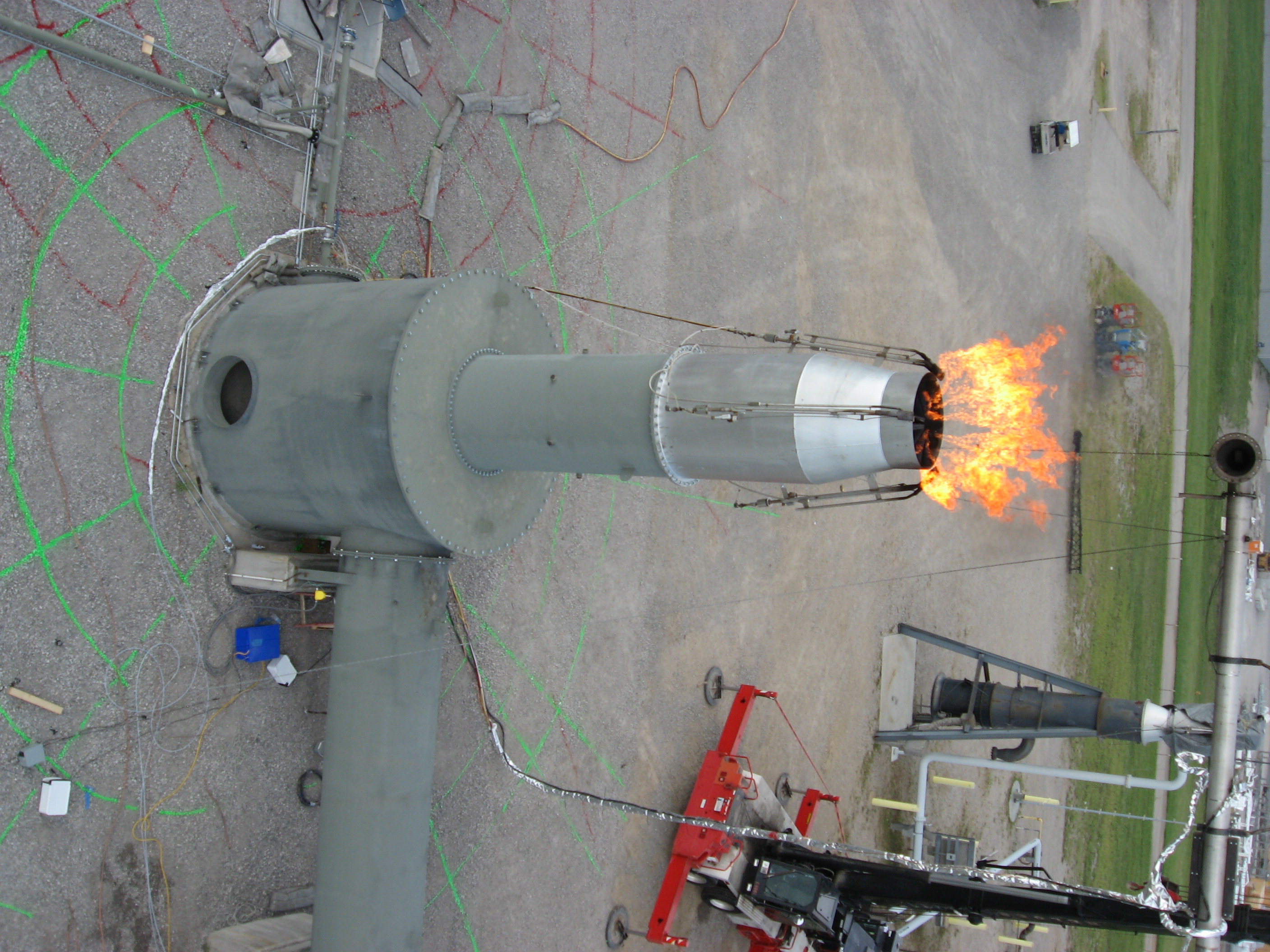
The University of Texas at Austin has developed one of the world's largest and most active programs in Air Resources Engineering (ARE). The University of Texas Program in Air Resources Engineering (UTPARE) currently includes six full-time faculty members supporting over 50 graduate students, 10 professional research staff, and 15 undergraduate researchers in three academic departments. Laboratories associated with UTPARE research activities exceed 5,000 sq. feet in the Center for Energy and Environmental Resources at The University of Texas' J.J. Pickle Research campus. Research activities within UTPARE fall into six broad categories: sources of air pollution, laboratory investigations of atmospheric physical and chemical processes, ambient air quality monitoring, ambient air quality modeling, indoor air quality, and air pollution control.
Atmospheric Physicochemical Processes Group
The main goal of our research is to make better-informed recommendations for environmental policies aimed at improving air quality and human health.
Learn More
Southeast Texas Urban Integrated Field Laboratory
Southeast Texas Urban Integrated Field Lab (SETx-UIFL) is one of four Urban Integrated Field Laboratories awarded in the Fall 2022 by the Biological and Environmental Research Program, Office of Science, U.S. Department of Energy. The Southeast Texas region, or the Beaumont-Port Arthur area, represent urban conditions and challenges similar to other Gulf Coast communities with industrial facilities, and population change with fewer resources available than larger cities.
Learn More
Gregory Portland Air Quality Monitoring
With the launch of a new liquefied natural gas liquefaction and export facility near the cities of Portland and Gregory, near Corpus Christi, Texas, the owner of the facility, Cheniere, funded the University of Texas at Austin (UT) to establish an air quality monitoring station downwind of the facility. The UT air-monitoring station and two additional stations operated by a contractor are located on Gregory-Portland ISD property through an agreement with Gregory-Portland Independent School District. Data from all the stations are reported continuously through a web site maintained by the University of Texas
Learn More
Project Astra
A first-of-its-kind network of sensors that will monitor emissions across an oil and gas production region with multiple operators may soon revolutionize the way methane leaks are detected. A new partnership led by The University of Texas at Austin and bringing together Environmental Defense Fund, ExxonMobil, Gas Technology Institute (GTI) and Pioneer Natural Resources Company, aims to demonstrate a novel approach to measuring methane emissions from oil and gas production sites, using advanced technologies to help minimize releases into the atmosphere. The collaboration, named Project ASTRA, will establish a sensor network that will leverage advances in methane-sensing technologies, data sharing and data analytics to provide near continuous monitoring. It will allow producers to find and fix significant methane releases at or below the cost of current monitoring technologies, most of which measure emissions only on an annual or semi-annual basis.
Learn More
EEMDL
EEMDL is a multi-disciplinary research and education center with a mission to be the global data and analytics hub to support improved greenhouse gas emissions accounting across energy supply chains.

